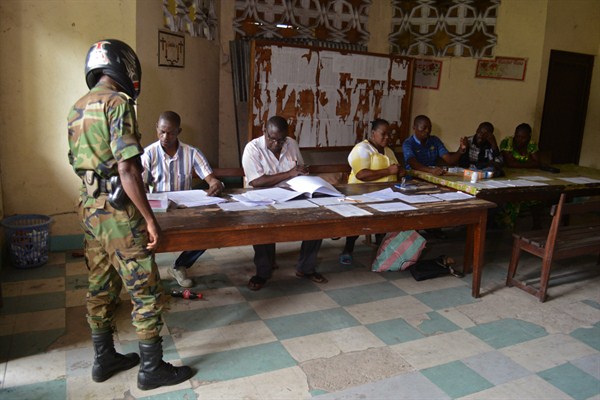The Republic of Congo rarely captures global attention, but the government’s military attacks on civilians, which have raged since early April, have become impossible to ignore.
On April 4, amid a five-day media blackout, the results of the March 20 presidential elections were announced. To nobody’s surprise, President Denis Sassou-Nguesso secured yet another term. Sassou, as he’s known in Congo, has held nearly uninterrupted power since 1979, through elections that are routinely marred by fraud and closed to international observers.
The March vote was no different. After the results were announced, young protesters set fire to the government’s administrative headquarters in the Brazzaville district of Makelekele, in what the regime subsequently labeled a terrorist attack. Since then, certain areas—notably cities considered opposition strongholds—have fallen into chaos. As of April, the aid organization Caritas International reported that more than 2,000 people had left the Pool region following a campaign of government airstrikes and heavy shelling. Although those attacks have subsided, the United Nations reported “mass arrests and torture in detention” in Pool. The violence is the worst Congo has seen since its 1997-1999 civil war.

